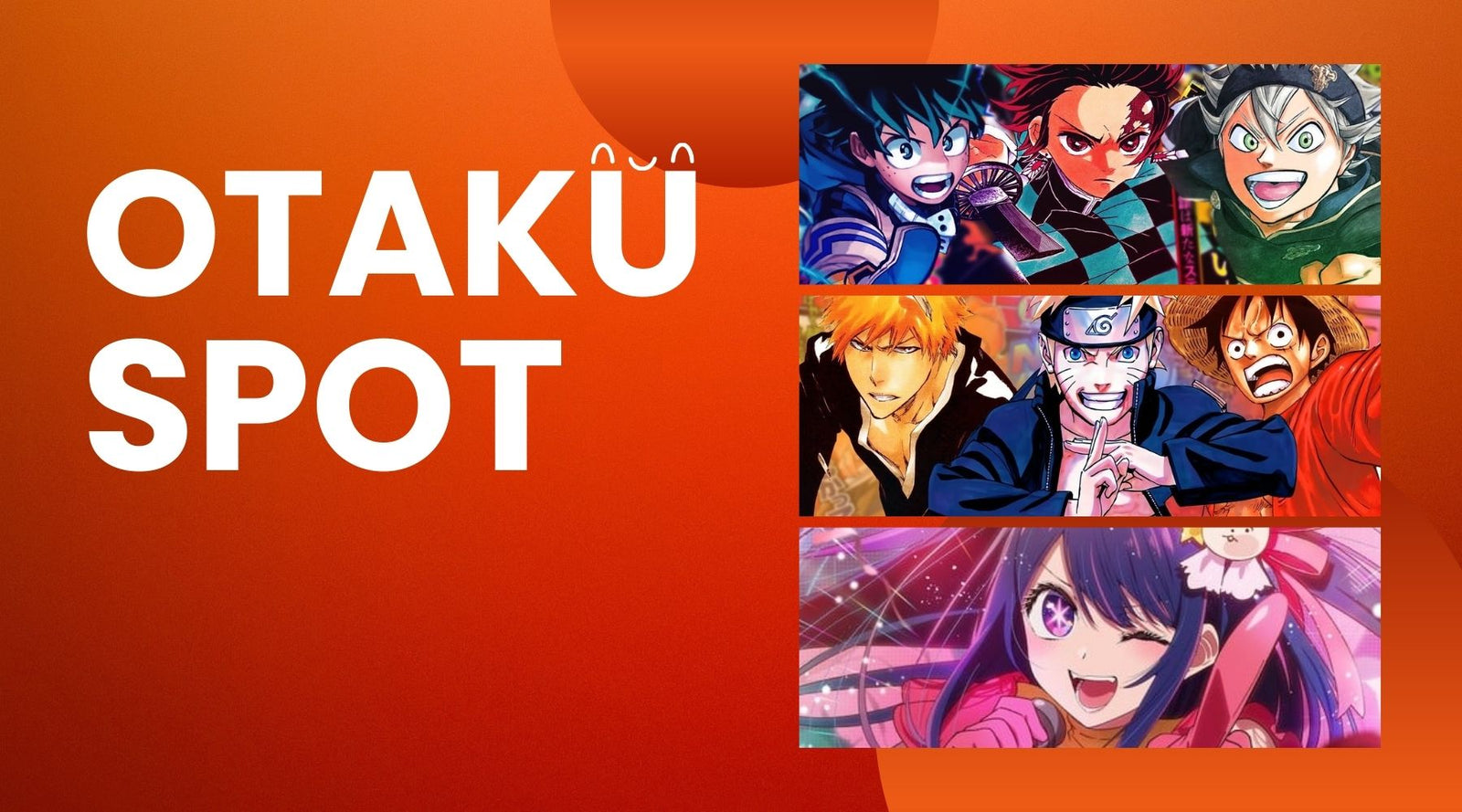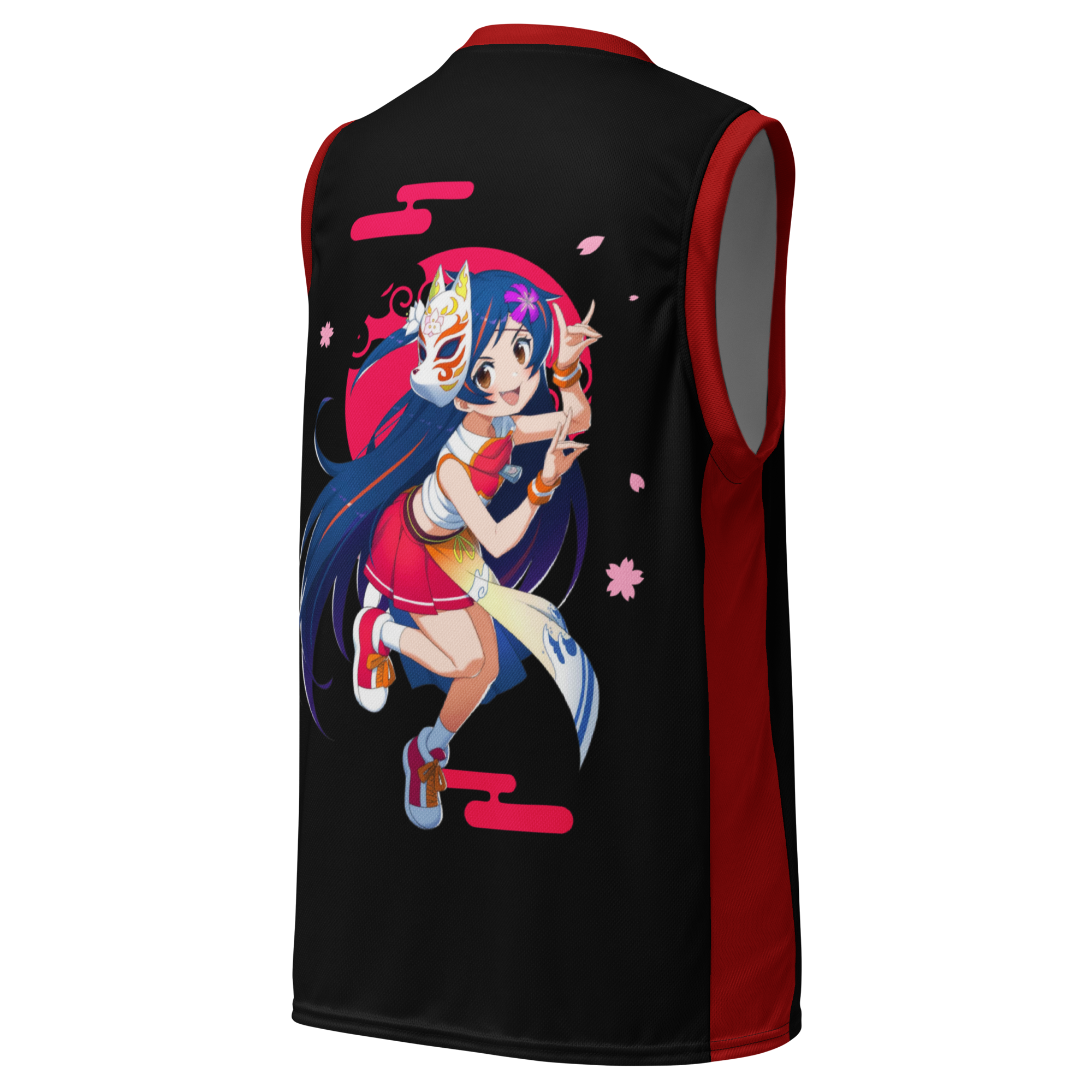Top 7 Gaming Franchises That Dominate Japan's Gaming Scene

Japan has long been a powerhouse in the gaming industry, unleashing an array of iconic franchises that have transcended generations and geographical boundaries.
From the mystical realms of Hyrule in "The Legend of Zelda" to the adrenaline-pumping survival horror of "Resident Evil," these franchises have not only shaped the landscape of gaming but have also become integral parts of global pop culture.
The narrative depth, innovative mechanics, and community engagement found in these games have carved out lasting legacies, influencing countless other titles and expanding the horizons of interactive entertainment.
By delving into the rich tapestry of Japan's most celebrated gaming series, we unearth a treasure trove of creativity and cultural impact that continues to enchant and inspire gamers worldwide.
1. Pokémon
Pokémon, created by Satoshi Tajiri and Ken Sugimori, debuted on the Game Boy in 1996 with "Pokémon Red" and "Pokémon Green." These sleeper hits quickly evolved into a global phenomenon known as "Pokémania," captivating audiences across the world Source: Wikipedia.
A Multimedia Juggernaut
What makes Pokémon truly stand out is its vast reach beyond video games. The franchise encompasses manga series, an anime series, trading card games, movies, merchandise, and even augmented reality experiences like Pokémon GO Source: StoryMaps. The idea of completeness and the quest to "catch 'em all" have kept fans engaged for decades, fostering a sense of achievement and continuity in the Pokémon universe Source: Source Marketing Material.
Sales and Cultural Impact
With over 480 million units sold worldwide and grossing an estimated $30 billion from video games alone, Pokémon stands as one of the most successful franchises in history Source: VG Sales Fandom. Beyond just numbers, Pokémon has had a significant impact on culture and society. It has influenced educational achievements, career choices, and even physical activity levels Source: HuffPost.
Health and Social Benefits
Research has documented numerous positive effects from playing Pokémon games. These include improved social life, enhanced family bonding, reduced sedentary behavior, and increased physical activity Source: ScienceDirect. Pokémon GO, in particular, has been lauded for promoting walking and outdoor activities, thereby contributing to better psychological and social well-being Source: NCBI.
Innovations and Future Directions
The Pokémon franchise has not rested on its laurels. With the advent of Pokémon GO, the series embraced augmented reality, blending digital creatures with the real world. This innovation has opened new avenues for health, education, and technology applications Source: SMV. As the world continues to evolve, so too will the Pokémon franchise, continually adapting to new technological landscapes while maintaining its core appeal.
2. Mario
A Global Icon
Mario, the mustachioed plumber in red overalls, is more than just a video game character; he's a global cultural icon. Created by Shigeru Miyamoto, Mario first appeared in the 1981 game "Donkey Kong." Over the decades, he has starred in over 200 games spanning various genres, from platformers to racing games, and has become synonymous with Nintendo itself. As of March 2022, the Mario franchise has sold more than 830 million units worldwide, making it the best-selling video game franchise ever Source: VG Sales Wiki.
Expansive Game Series
One of Mario's most remarkable achievements is his successful transition across various game genres. While the core Super Mario series started with platformers like "Super Mario Bros." and evolved into groundbreaking 3D titles such as "Super Mario 64" and "Super Mario Odyssey" Source: Wikipedia, the franchise didn't stop there.
Diverse Genres
Mario has ventured into numerous other gaming genres:
-
Racing: The "Mario Kart" series, particularly "Mario Kart 8 Deluxe," which is one of the best-selling games of all time with over 60 million copies sold Source: Nintendo Wiki.
-
Sports: Games like "Mario Tennis" and "Mario Golf" offer fun, arcade-style takes on traditional sports.
-
Party: The "Mario Party" series provides mini-games perfect for family gatherings and friendly competitions.
-
RPG: Titles like "Paper Mario" and "Mario & Luigi" explore deeper storytelling and character development Source: Game Rant.
Cultural Impact
Mario's influence extends beyond gaming. He is a staple in films, television shows, comics, and even memes. The recently released "The Super Mario Bros. Movie" had a massive opening weekend in Japan, grossing $14.3 million, the biggest ever for an animated film in the country Source: Wikipedia. Even the Japanese Prime Minister dressed up as Mario during the closing ceremony of the 2016 Summer Olympics, showcasing how deeply ingrained the character is in Japanese culture Source: Medium.
Enduring Popularity
Despite being over four decades old, Mario remains immensely popular. Surveys consistently rank him as one of Japan's favorite characters, proving his timeless appeal Source: Game Developer. His games continue to top sales charts, demonstrating that the magic of Mario transcends generations and continues to captivate new audiences.
From humble beginnings in "Donkey Kong" to becoming a multi-billion dollar franchise, Mario's journey is nothing short of legendary. His ability to adapt and thrive across different genres and media showcases the incredible versatility and enduring charm of this iconic character.
3. Dragon Quest
The National Phenomenon
Dragon Quest is more than just a video game series in Japan; it’s a cultural phenomenon that has left an indelible mark on Japanese pop culture. Created by Yuji Horii and featuring artwork by manga legend Akira Toriyama, the series debuted in 1986 and quickly captivated the hearts of millions. Unlike its Western counterpart, Final Fantasy, which found success globally, Dragon Quest's impact has been particularly profound in Japan. The franchise is so integral to Japanese culture that new game releases have historically caused significant disruptions, leading companies to schedule launches on weekends to minimize work absenteeism (Source: Reddit).
Cute Aesthetics and Iconic Characters
One of the key factors behind Dragon Quest's immense popularity lies in its visual appeal. Akira Toriyama, the creator of "Dragon Ball," lent his unique art style to the game, making characters like the blue slime instantly recognizable. This cute aesthetic has made the series accessible to people of all ages, contributing to its broad appeal. Even today, slime-shaped merchandise remains a common sight in Japan, further cementing the franchise's iconic status (Source: Den of Geek).
Expanding Beyond Video Games
Dragon Quest's influence extends far beyond the realm of video games. The franchise has spawned numerous manga and anime adaptations, most notably "Dragon Quest: The Adventure of Dai," which was serialized in Weekly Shonen Jump and sold over 47 million copies. The series' cross-media presence has only strengthened its cultural footprint, making it a household name in Japan Source: Toei Animation USA.
A Template for Japanese RPGs
Dragon Quest set the standard for Japanese RPGs with its combination of overhead movement and first-person, random battles, elements borrowed from Western games like Ultima and Wizardry. The game’s mechanics and storytelling techniques have influenced countless other titles, including Final Fantasy, its primary competitor. This pioneering approach helped establish the basic template for subsequent Japanese console RPGs Source: Game Developer.
Cultural Impact and Legacy
The cultural impact of Dragon Quest in Japan cannot be overstated. It inspired a generation of gamers and developers, becoming an integral part of Japanese pop culture. The series’ music has been performed at numerous concerts, and fan-made ROM hacks continue to breathe new life into older games. Despite its niche status in the West, Dragon Quest remains a powerhouse in Japan, continually setting sales records and influencing new generations of gamers Source: Den of Geek.
With its rich history and enduring appeal, Dragon Quest stands as a testament to the power of storytelling and innovation in gaming. Its legacy continues to shape the landscape of Japanese RPGs, making it a cornerstone of the industry.
4. Final Fantasy
Following the cultural phenomenon of Dragon Quest, we delve into another monumental RPG series that has left an indelible mark on gaming globally: Final Fantasy. Renowned for its storytelling and innovative RPG mechanics, Final Fantasy is a cornerstone of Japanese video game culture and a significant global influence.
The Heartbeat of Storytelling
Final Fantasy is celebrated for its intricate and emotional narratives. From the poignant tale of resistance against corporate malfeasance in Final Fantasy VII to the deeply personal journey of pilgrimage and sacrifice in Final Fantasy X, each game offers a unique experience that resonates with players on a profound level. The series' ability to evoke powerful emotions such as fear, excitement, or sadness is unparalleled in the gaming world Source: Magic Media Studio.
Revolutionizing RPG Mechanics
The innovation in RPG mechanics is another hallmark of the Final Fantasy series. The franchise introduced many features now standard in RPGs, such as character classes and specific jobs that enable unique abilities Source: Wikipedia. Each installment of the series is an independent experience, allowing players to dive into any game without needing prior knowledge of others in the series Source: The Gamer. This approach has broadened its appeal, attracting both new and veteran gamers alike.
Global Influence and Fanbase
Final Fantasy's impact extends far beyond Japan. It played a crucial role in introducing JRPGs to international audiences, particularly in North America. The original game sold 700,000 copies in North America alone, cementing its place in gaming history Source: Den of Geek. Titles like Final Fantasy VII are often credited with bringing RPGs into the mainstream, especially in Western markets.
Enduring Legacy
Since its debut in 1987, the Final Fantasy series has released 16 main entries, each contributing to its legacy in unique ways Source: Wikipedia. Games like Final Fantasy XIV have cultivated communities of kindness and camaraderie, enhancing the social aspect of gaming. The series continues to innovate, ensuring its relevance in the ever-evolving landscape of video games.
Final Fantasy's profound storytelling, innovative mechanics, and global influence make it a pivotal part of gaming history. As we move forward, the series will undoubtedly continue to enchant and inspire gamers worldwide.
5. Resident Evil
When it comes to survival horror, Resident Evil is the undisputed pioneer. Since its debut in 1996, Resident Evil has not only defined but also named the survival horror genre. Capcom’s creation brought a unique blend of suspense, action, and fear that captivated players worldwide. As we delve deeper into this iconic franchise, let’s explore what makes it a standout in Japan and beyond.
Defining Survival Horror
The original Resident Evil game set a new bar for horror games. It introduced a gripping narrative, fixed camera angles, and resource management, which became staples of the genre. The term "survival horror" itself was coined from this game, highlighting its influential role. Players faced limited ammunition and health supplies, heightening the tension with every encounter.
Source: Wikipedia - Survival Horror
Cultural Impact and Popularity
Originally known as Biohazard in Japan, Resident Evil gained immense popularity due to its engaging gameplay and immersive storytelling. The franchise's influence expanded beyond gaming, contributing to a resurgence of zombie culture in popular media during the 2000s. Despite some fluctuating reception over various installments, the series maintains a strong fanbase in Japan and globally.
Source: Wikipedia - Resident Evil Franchise
Film and Merchandise Crossovers
The success of Resident Evil extended into films, with the first movie released in 2002. Directed by Paul W.S. Anderson, the film series offered a fresh narrative while incorporating familiar elements from the games. Despite mixed reviews, the movies were commercially successful, further cementing the franchise’s cultural footprint. The adaptation into other media, such as novels, comics, and merchandise, broadened its reach.
Source: Wikipedia - Resident Evil Film Series
Evolution and Innovation
Resident Evil 4, released in 2005, marked a significant shift in the franchise. It introduced an over-the-shoulder camera perspective, which influenced many future action and horror games like Gears of War and Dead Space. This innovative approach revitalized the series, blending intense action with classic survival horror elements.
Source: Screen Rant - Resident Evil 4's Influence
Recent Developments
Capcom continues to evolve the franchise with remakes and new titles. The recent remakes of Resident Evil 2 and Resident Evil 3 have been well-received, praised for their updated graphics and refined gameplay mechanics. These efforts keep the series relevant and appealing to both old fans and new players alike.
Source: The Gamer - Resident Evil Remakes
As we wrap up our look at Resident Evil, it’s clear that this franchise not only pioneered a genre but also maintained its relevance through continuous innovation. Its extensive crossover into films and merchandise underscores its broad appeal and lasting impact. Stay tuned as we next dive into the cooperative thrills of Monster Hunter!
6. Monster Hunter
Cooperative Gameplay and Community Engagement
The "Monster Hunter" series is a unique phenomenon in the gaming world, famous for its cooperative gameplay and vibrant community engagement. Since its debut on PlayStation 2 in 2004, the franchise has consistently drawn players into its rich universe of strategic combat and resource gathering. At its core, "Monster Hunter" emphasizes teamwork, requiring players to band together to take down colossal creatures. This cooperative element has fostered a strong community spirit among its fans, turning hunting sessions into social events. The game's complex mechanics and intricate combat system necessitate collaboration and communication, making it a perfect fit for multiplayer experiences. Players often form hunting parties to strategize and execute their attacks, enhancing the sense of camaraderie and shared achievement. This aspect has been crucial in sustaining the franchise's popularity over the years, as evidenced by the thriving online communities and forums dedicated to discussing strategies, sharing accomplishments, and organizing group hunts.
Impressive Sales Figures
"Monster Hunter" boasts significant sales figures, particularly with its recent titles. As of May 2024, the franchise has sold over 100 million units worldwide, making it Capcom's second highest-selling series after "Resident Evil" (Source: Automaton Media). The success of "Monster Hunter: World," which sold more than 25 million units, underscores its massive appeal. This title alone accounts for nearly a quarter of the franchise's total sales (Source: IGN). "Monster Hunter Rise," released in 2021, also performed exceptionally well, with sales surpassing 15 million copies. Its premium expansion, "Sunbreak," further added to this success, achieving over 8 million downloads (Source: GamesRadar). These impressive figures highlight the enduring popularity and growth of the series, particularly in the Japanese market where it enjoys a dedicated fanbase.
Expanding Horizons
The continuous updates and expansions keep the game fresh and engaging. For example, "Monster Hunter: World" received the "Iceborne" expansion, which introduced new monsters, environments, and gameplay mechanics, contributing to its long-term success. By continually evolving and expanding its content, the franchise ensures that players remain engaged and invested in the game. Moreover, the series' success is not confined to Japan. "Monster Hunter" has garnered a global audience, partly due to its availability on multiple platforms, including PlayStation, Xbox, and PC. The Windows port of "Monster Hunter Rise" in January 2022 and subsequent releases on PlayStation and Xbox consoles have further broadened its reach, making it accessible to a wider audience (Source: Wikipedia).
Conclusion
The "Monster Hunter" franchise exemplifies the power of cooperative gameplay and community engagement in creating a lasting and beloved series. Its impressive sales figures and continuous content updates ensure that it remains a cornerstone of both Japanese and global gaming culture. With each new release, "Monster Hunter" not only builds upon its rich legacy but also expands its horizons, drawing in new players and solidifying its place as one of Capcom's most successful franchises.
7. The Legend of Zelda
The Legend of Zelda series has been a cornerstone of innovative gameplay and design since its inception in 1986. Created by Shigeru Miyamoto and Takashi Tezuka, the franchise has consistently pushed the boundaries of what action-adventure games can achieve, setting new standards and influencing countless other titles.
Innovative Gameplay and Design
The Legend of Zelda is renowned for its nonlinear gameplay, a concept first introduced in the original 1986 game. This open-ended approach allows players to explore vast worlds, solve complex puzzles, and engage in strategic combat at their own pace. Titles like A Link to the Past, Ocarina of Time, The Wind Waker, and Breath of the Wild have each brought unique features that have left a lasting impact on the gaming industry. For example, Ocarina of Time introduced a targeting system that simplified 3D combat, which became an industry standard Source: Wikipedia.
Legacy and Cultural Impact
The Legend of Zelda has not just innovated in gameplay but also carved out a significant cultural legacy. The series' protagonist, Link, and Princess Zelda are iconic characters known for their repeated battles against the evil warlord Ganon. The franchise's narrative complexity and emotional depth have resonated with players worldwide, making it one of Nintendo's most beloved series Source: PBS.
Impact on Game Design
The franchise has pioneered various elements, such as save functions, intricate dungeon designs, and a mix of puzzle-solving with action-oriented gameplay. These elements have made the series a template for future action-adventure games. The recent release, Tears of the Kingdom, has continued this trend by allowing players to build complex items, showcasing a new level of player creativity and freedom Source: Gamerant.
Continued Success and Fan Engagement
With each new release, The Legend of Zelda continues to captivate its audience. Breath of the Wild sold nearly 30 million copies and became one of the highest-selling titles for the Nintendo Switch. Its successor, Tears of the Kingdom, broke sales records with 10 million units sold within the first three days of release Source: Statista. In Japan, the fanbase is so dedicated that many took time off work to immerse themselves in the latest adventures of Link Source: The New York Times.
Cross-Media Presence
The Legend of Zelda's influence extends beyond video games into various media forms, including manga, animated series, and even musical concerts featuring its memorable scores. This cross-media presence has helped to cement its place in popular culture, reaching audiences far beyond the gaming community Source: Fandom.
The Legend of Zelda series stands as a testament to how innovative gameplay, compelling storytelling, and cultural resonance can create a franchise that not only endures but also continually evolves, inspiring future generations of gamers and developers alike.
Conclusion
From the enchanted realms of Hyrule to the zombie-infested streets of Raccoon City, Japan's gaming franchises have demonstrated their staying power and cultural impact worldwide. Final Fantasy has spun tales that linger in our hearts, while Resident Evil has defined survival horror with spine-chilling precision. Monster Hunter continues to bring folks together in exhilarating creature-slaying camaraderie, and The Legend of Zelda remains a beacon of innovation and narrative brilliance.
Much like a well-timed power-up in an epic boss fight, these franchises have shown an uncanny ability to adapt and evolve, ensuring they remain at the forefront of our gaming consciousness. One thing's for certain: as long as Japan keeps enchanting us with its digital wonders, our love for these iconic games will never hit the game-over screen. So, ready your controllers and prepare your strategies—this thrilling adventure is far from over!










































Leave a comment